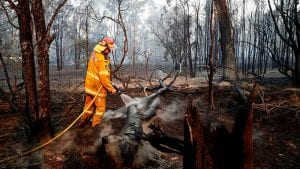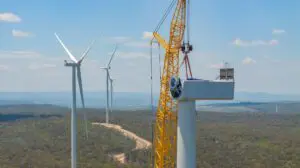
Australia came dangerously close to derailing its clean energy transition at the last federal election, says Alison Reeve, Energy and Climate Change Deputy Program Director at the Grattan Institute.
In frank and sobering comments to the Energy Efficiency Council’s national conference in Melbourne on Tuesday, Reeve urged the federal government, business, and advocates to focus not just on ambition, but on durability.
“We were actually bloody lucky,” Reeve said. “Just rewind to six months ago – we were staring down the barrel of a government that was pretty much going to cancel everything.”
Among the policies at risk were the safeguard mechanism, the Rewiring the Nation initiative, and the Made in Australia plan. Even electric vehicle incentives were under threat. “They were going to take off the penalty so that it did nothing,” she said.
Reeve draws a sharp comparison to the United States, where clean energy progress is being stalled or reversed by the Trump administration.
“We came bloody close to being in the situation that the US is in now, where everything gets cancelled,” she said.
The problem in part, Reeve argues, is that too little effort was made to bring the political opposition on board.
“The industry and government who are behind the energy transition didn’t put in the legwork,” she said. “That meant the opposition couldn’t look at those things and go, ‘we can see a way that, if we get into government, we can do them our way.’
“All they were left with was to cancel.”
To avoid future policy whiplash, Reeve says securing bipartisan support for key initiatives must be a top priority. “We have to make sure that we bed down those things so that they can survive a change in government.”
Good ideas aren’t enough
Reeve was also blunt about the challenge of implementation. “There were some very, very large commitments made in the last term of government, which are just lots of money at the moment and not enough on the ground,” she said. “If you can’t make that stuff happen on the ground, you don’t get permission to do the next thing.”
She singled out the federal government’s Capacity Investment Scheme, designed to underwrite new renewable energy projects, as critical to hitting the 2030 emissions reduction target.
“We need it to make electricity the clean option for people who are currently using coal and gas,” she said. “We’ve awarded some contracts, but no one’s broken ground yet. People are only just getting into the queue for their wind turbines and their transformers and everything else.”
“There is a long way to go to make that actually turn into something.”
As a former federal public servant, Reeve offered a clear-eyed view of where governments often stumble. “Federal governments often trip up on the implementation, because it’s hard to implement from Canberra.”
“It’s very easy when you’re in Canberra to do lots of lovely macroeconomic, microeconomic stuff. We get the price signals right here and the regulation right there, and job done. But it’s that actual building of stuff that the transition is about—and we haven’t started a lot of that.”
Creating space for ambition
Reeve’s core message was clear: the transition can’t rely on political luck. She warned that while the government currently has a mandate to deliver on existing commitments, there’s no political cover for more ambitious moves unless advocates lay the groundwork.
“If you want an ambitious 2035 target, you have to have been doing the groundwork to make it easy for the government to do that,” she said. “If you want a better National Energy Productivity Plan—which I think would be a good thing—you need to have been doing the groundwork so they can pick it up.”
Reeve called on think tanks like the Grattan Institute, industry, and civil society to “create the space” for both government and opposition to act without political risk. “There’s not actually a mandate for very much at the moment,” she said.
That means giving both sides of politics a way to support the transition on their own terms. “The opposition, whoever they are, and whatever shape the Senate is, we need to make that space for that ambition.”
Reeve’s message is a reminder that the energy transition isn’t just about what gets promised, but what gets built, who owns the narrative, and whether it can survive the next electoral cycle.








